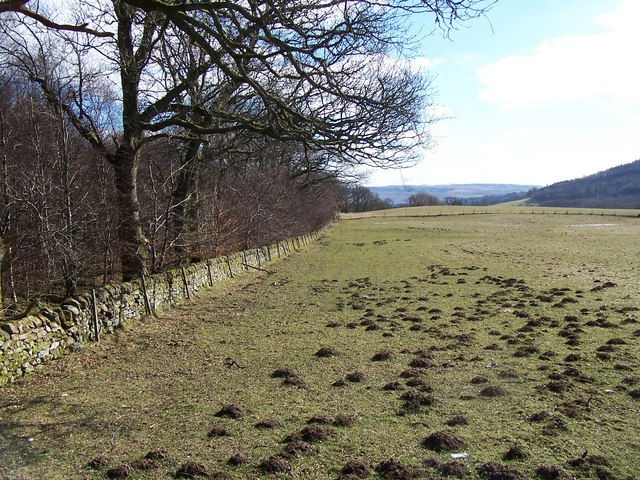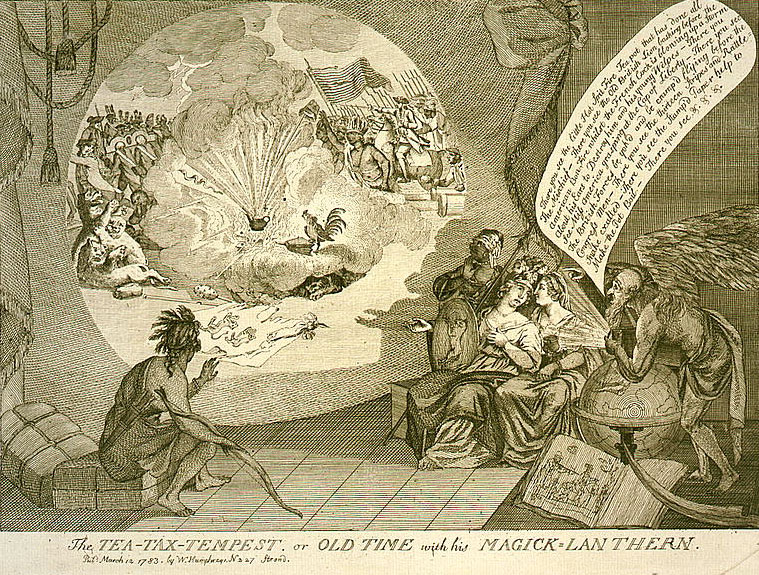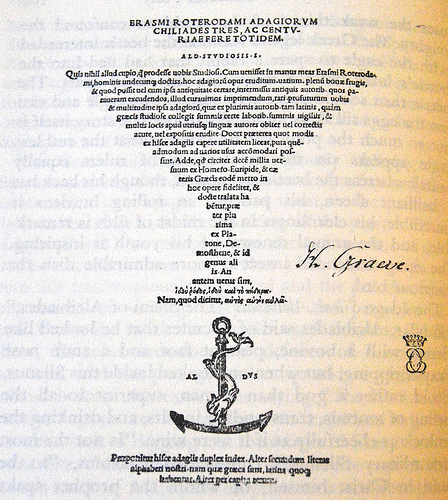|
Make A Mountain Out Of A Molehill
Making a mountain out of a molehill is an idiom referring to over-reactive, histrionic behaviour where a person makes too much of a minor issue. It seems to have come into existence in the 16th century. Metaphor The idiom is a metaphor for the common behaviour of responding disproportionately to something - usually an adverse circumstance. One who ''makes a mountain out of a molehill'' is said to be greatly exaggerating the severity of the situation. In cognitive psychology, this form of distortion is called magnification or overreacting. The phrase itself is so common that a study by psychologists found that with respect to familiarity and image value, it ranks high among the 203 common sayings they tested.Kenneth L. Higbee and Richard J. Millard, ''Visual imagery and familiarity ratings for 203 sayings'', Am. J. Psychiatry, Summer 1983, Vol. 96, No. 2, pp. 211–22; found aJSTOR website Retrieved January 28, 2010. Similar idioms include ''Much ado about nothing'' and ''Making ... [...More Info...] [...Related Items...] OR: [Wikipedia] [Google] [Baidu] |
Idiom
An idiom is a phrase or expression that typically presents a figurative, non-literal meaning attached to the phrase; but some phrases become figurative idioms while retaining the literal meaning of the phrase. Categorized as formulaic language, an idiom's figurative meaning is different from the literal meaning. Idioms occur frequently in all languages; in English alone there are an estimated twenty-five million idiomatic expressions. Derivations Many idiomatic expressions were meant literally in their original use, but sometimes the attribution of the literal meaning changed and the phrase itself grew away from its original roots—typically leading to a folk etymology. For instance, the phrase "spill the beans" (meaning to reveal a secret) is first attested in 1919, but has been said to originate from an ancient method of voting by depositing beans in jars, which could be spilled, prematurely revealing the results. Other idioms are deliberately figurative. For example, "break ... [...More Info...] [...Related Items...] OR: [Wikipedia] [Google] [Baidu] |
Old English
Old English (, ), or Anglo-Saxon, is the earliest recorded form of the English language, spoken in England and southern and eastern Scotland in the early Middle Ages. It was brought to Great Britain by Anglo-Saxon settlement of Britain, Anglo-Saxon settlers in the mid-5th century, and the first Old English literature, Old English literary works date from the mid-7th century. After the Norman conquest of 1066, English was replaced, for a time, by Anglo-Norman language, Anglo-Norman (a langues d'oïl, relative of French) as the language of the upper classes. This is regarded as marking the end of the Old English era, since during this period the English language was heavily influenced by Anglo-Norman, developing into a phase known now as Middle English in England and Early Scots in Scotland. Old English developed from a set of Anglo-Frisian languages, Anglo-Frisian or Ingvaeonic dialects originally spoken by Germanic peoples, Germanic tribes traditionally known as the Angles, Sa ... [...More Info...] [...Related Items...] OR: [Wikipedia] [Google] [Baidu] |
Metaphors
A metaphor is a figure of speech that, for rhetorical effect, directly refers to one thing by mentioning another. It may provide (or obscure) clarity or identify hidden similarities between two different ideas. Metaphors are often compared with other types of figurative language, such as antithesis, hyperbole, metonymy, and simile. One of the most commonly cited examples of a metaphor in English literature comes from the "All the world's a stage" monologue from ''As You Like It'': All the world's a stage, And all the men and women merely players; They have their exits and their entrances And one man in his time plays many parts, His Acts being seven ages. At first, the infant... :—William Shakespeare, ''As You Like It'', 2/7 This quotation expresses a metaphor because the world is not literally a stage, and most humans are not literally actors and actresses playing roles. By asserting that the world is a stage, Shakespeare uses points of comparison between the world and a s ... [...More Info...] [...Related Items...] OR: [Wikipedia] [Google] [Baidu] |
English-language Idioms
English is a West Germanic language of the Indo-European language family, with its earliest forms spoken by the inhabitants of early medieval England. It is named after the Angles, one of the ancient Germanic peoples that migrated to the island of Great Britain. Existing on a dialect continuum with Scots, and then closest related to the Low Saxon and Frisian languages, English is genealogically West Germanic. However, its vocabulary is also distinctively influenced by dialects of France (about 29% of Modern English words) and Latin (also about 29%), plus some grammar and a small amount of core vocabulary influenced by Old Norse (a North Germanic language). Speakers of English are called Anglophones. The earliest forms of English, collectively known as Old English, evolved from a group of West Germanic (Ingvaeonic) dialects brought to Great Britain by Anglo-Saxon settlers in the 5th century and further mutated by Norse-speaking Viking settlers starting in the 8th and 9t ... [...More Info...] [...Related Items...] OR: [Wikipedia] [Google] [Baidu] |
Tempest In A Teapot
Tempest in a teapot (American English), or storm in a teacup (British English), is an idiom meaning a small event that has been exaggerated out of proportion. There are also lesser known or earlier variants, such as ''tempest in a teacup'', ''storm in a cream bowl'', ''tempest in a glass of water'', ''storm in a wash-hand basin'', and ''storm in a glass of water''. Etymology Cicero, in the first century BC, in his ''De Legibus'', used a similar phrase in Latin, possibly the precursor to the modern expressions, , translated: "For Gratidius raised a tempest in a ladle, as the saying is". Then in the early third century AD, Athenaeus, in the '' Deipnosophistae'', has Dorion ridiculing the description of a tempest in the ''Nautilus'' of Timotheus by saying that he had seen a more formidable storm in a boiling saucepan. The phrase also appeared in its French form ('a tempest in a glass of water'), to refer to the popular uprising in the Republic of Geneva near the end of the eighte ... [...More Info...] [...Related Items...] OR: [Wikipedia] [Google] [Baidu] |
Adagia
''Adagia'' (singular ''adagium'') is the title of an annotated collection of Greek and Latin proverbs, compiled during the Renaissance by Dutch humanist Desiderius Erasmus Roterodamus. Erasmus' collection of proverbs is "one of the most monumental ... ever assembled" (Speroni, 1964, p. 1). The first edition, titled ''Collectanea Adagiorum'', was published in Paris in 1500, in a slim quarto of around eight hundred entries. By 1508, after his stay in Italy, Erasmus had expanded the collection (now called ''Adagiorum chiliades tres'' or "Three thousands of proverbs") to over 3,000 items, many accompanied by richly annotated commentaries, some of which were brief essays on political and moral topics. The work continued to expand right up to the author's death in 1536 (to a final total of 4,151 entries), confirming the fruit of Erasmus' vast reading in ancient literature. Commonplace examples from ''Adagia'' Some of the adages have become commonplace in many European language ... [...More Info...] [...Related Items...] OR: [Wikipedia] [Google] [Baidu] |
The First Tome Or Volume Of The Paraphrase Of Erasmus Vpon The Newe Testamente
''The First tome or volume of the Paraphrase of Erasmus upon the new testament'' is the first volume of a book combining an English translation of the New Testament interleaved with an English translation of Desiderius Erasmus's Latin paraphrase of the New Testament. It was edited by Nicholas Udall and first published in January 1548 by Edward Whitchurch. The second volume was published in 1549. Translations were by Nicolas Udall, Catherine Parr, Thomas Key, Miles Coverdale, John Olde, Leonard Coxe, and Mary I of England. According to a royal ''Injunction'' of 1547, copies were to be kept in every parish church in England, emphasizing the influence of Erasmus on the English Reformation. Background The ''Paraphrases'' of Erasmus, which were composed and published between 1517 and 1523, exerted great influence on English Christianity of the time. It was probably the idea of Catherine Parr, the last wife of Henry VIII of England, to translate these paraphrases into English "to g ... [...More Info...] [...Related Items...] OR: [Wikipedia] [Google] [Baidu] |
Nicholas Udall
Nicholas Udall (or Uvedale Udal, Woodall, or other variations) (1504 – 23 December 1556) was an English playwright, cleric, schoolmaster, the author of '' Ralph Roister Doister'', generally regarded as the first comedy written in the English language. Biography Udall was born in Hampshire and educated at Winchester College and Corpus Christi College, Oxford. He was tutored under the guidance of Thomas Cromwell, who mentions him in a letter to John Creke of 17 August 1523 as 'Maister Woodall' and he appears again in Cromwell's accounts for 1535 as 'Nicholas Woodall Master of Eton'. After graduation from Oxford, he taught at a London grammar school in 1533. He taught Latin at Eton College, of which he was headmaster from about 1534 until 1541, when he was forced to leave after being convicted of offences against his pupils under the Buggery Act 1533. The felony of buggery, like all other felonies, carried a sentence of capital punishment by hanging, but Udall wrote an impa ... [...More Info...] [...Related Items...] OR: [Wikipedia] [Google] [Baidu] |
Molehill
A molehill (or mole-hill, mole mound) is a conical mound of loose soil raised by small burrowing mammals, including moles, but also similar animals such as mole-rats, and voles. The word is first recorded in the first half of the 15th century. Formerly the hill was known as a 'wantitump', a word still in dialect use for centuries afterwards. The phrase " making a mountain out of a molehill" is commonly used metaphorically to mean "to exaggerate a minor problem". Evidence of burrows Molehills are waste material which come from digging or repairing burrows, and so are usually found where the animal is establishing new burrows, or where existing ones are damaged (for example by the weight of grazing livestock). Where moles burrow beneath the roots of trees or shrubs, the roots support the tunnel, and molehills are less common, and so even a dense population of the animals may be inconspicuous in these places. Molehills are often the only sign to indicate the presence of the anima ... [...More Info...] [...Related Items...] OR: [Wikipedia] [Google] [Baidu] |
Mole (animal)
Moles are small mammals adapted to a subterranean lifestyle. They have cylindrical bodies, velvety fur, very small, inconspicuous eyes and ears, reduced hindlimbs, and short, powerful forelimbs with large paws adapted for digging. The word “mole” refers to any species in the family Talpidae, which means “mole” in Latin. Moles are found in most parts of North America, Europe and Asia. Moles may be viewed as pests to gardeners, but they provide positive contributions to soil, gardens, and ecosystem, including soil aeration, feeding on slugs and small creatures that eat plant roots, and providing prey for other wildlife. They eat earthworms and other small invertebrates in the soil. Terminology In Middle English, moles were known as ''moldwarp''. The expression "don't make a mountain out of a molehill" (which means "exaggerating problems") was first recorded in Tudor times. By the era of Early Modern English, the mole was also known in English as ''mouldywarp'', a wor ... [...More Info...] [...Related Items...] OR: [Wikipedia] [Google] [Baidu] |
Molehill Country - Geograph
A molehill (or mole-hill, mole mound) is a conical mound of loose soil raised by small burrowing mammals, including moles, but also similar animals such as mole-rats, and voles. The word is first recorded in the first half of the 15th century. Formerly the hill was known as a 'wantitump', a word still in dialect use for centuries afterwards. The phrase " making a mountain out of a molehill" is commonly used metaphorically to mean "to exaggerate a minor problem". Evidence of burrows Molehills are waste material which come from digging or repairing burrows, and so are usually found where the animal is establishing new burrows, or where existing ones are damaged (for example by the weight of grazing livestock). Where moles burrow beneath the roots of trees or shrubs, the roots support the tunnel, and molehills are less common, and so even a dense population of the animals may be inconspicuous in these places. Molehills are often the only sign to indicate the presence of the anima ... [...More Info...] [...Related Items...] OR: [Wikipedia] [Google] [Baidu] |
Alliteration
Alliteration is the conspicuous repetition of initial consonant sounds of nearby words in a phrase, often used as a literary device. A familiar example is "Peter Piper picked a peck of pickled peppers". Alliteration is used poetically in various languages around the world, including Arabic, Irish, German, Mongolian, Hungarian, American Sign Language, Somali, Finnish, Icelandic. Historical use The word ''alliteration'' comes from the Latin word ''littera'', meaning "letter of the alphabet". It was first coined in a Latin dialogue by the Italian humanist Giovanni Pontano in the 15th century. Alliteration is used in the alliterative verse of Old English, Old Norse, Old High German, Old Saxon, and Old Irish. It was an important ingredient of the Sanskrit shlokas. Alliteration was used in Old English given names. This is evidenced by the unbroken series of 9th century kings of Wessex named Æthelwulf, Æthelbald, Æthelberht, and Æthelred. These were followed in the 10th ... [...More Info...] [...Related Items...] OR: [Wikipedia] [Google] [Baidu] |







